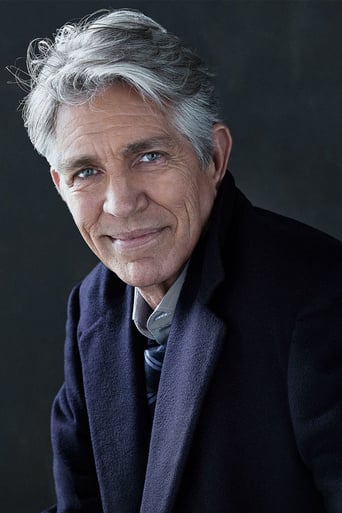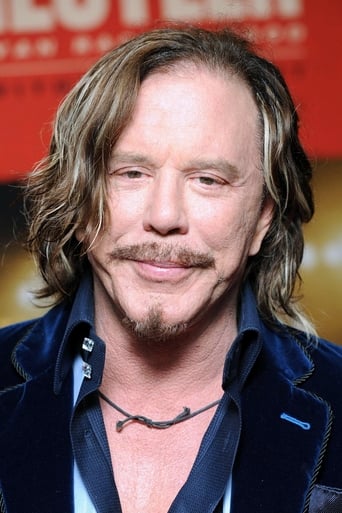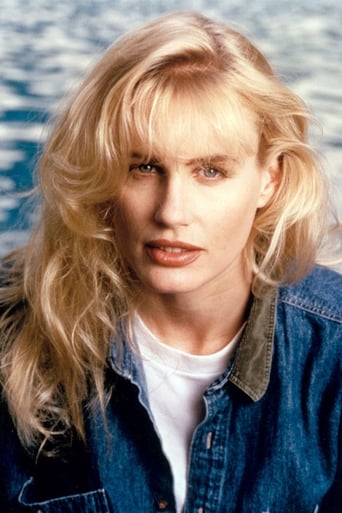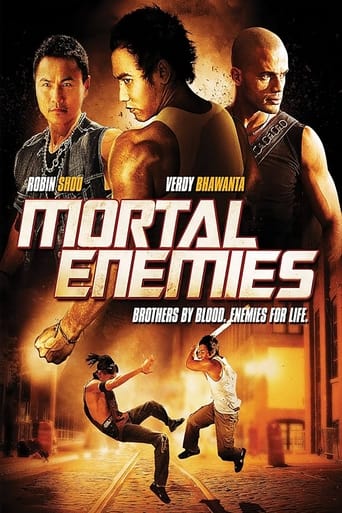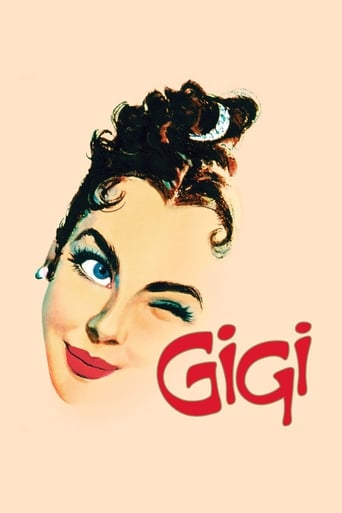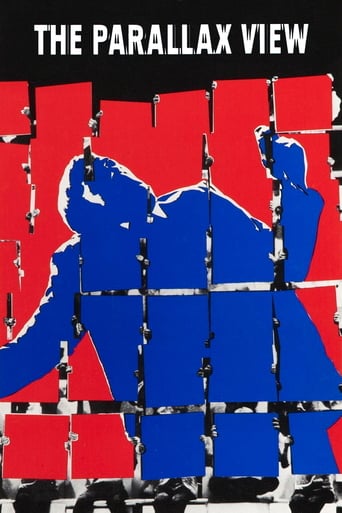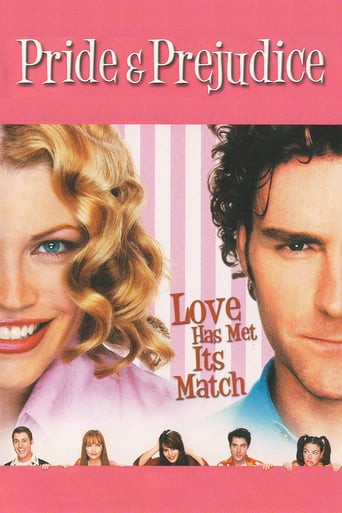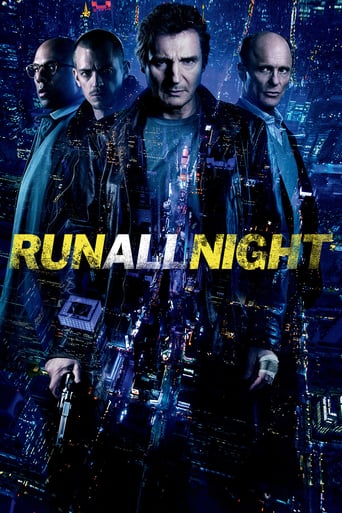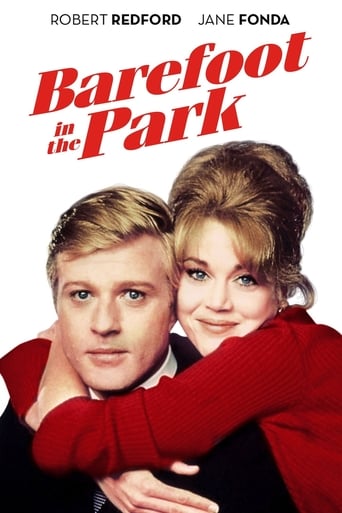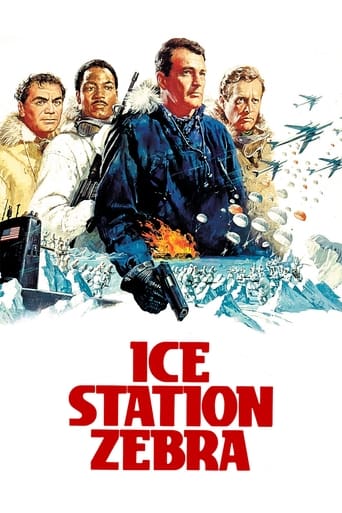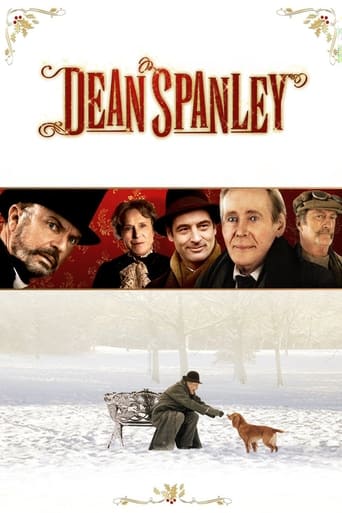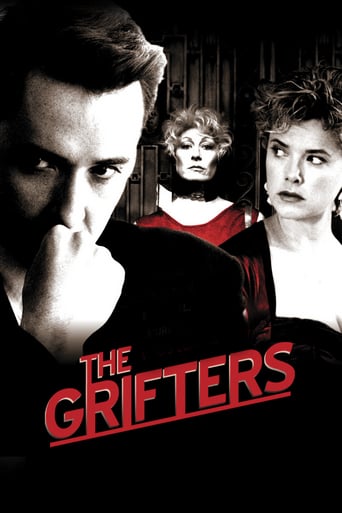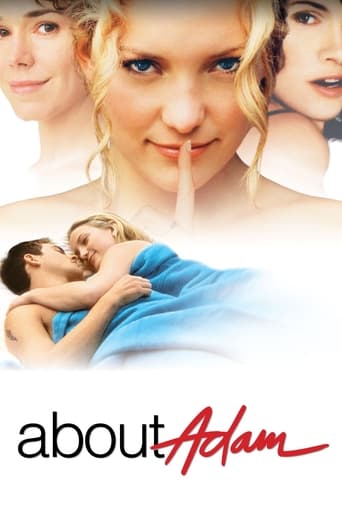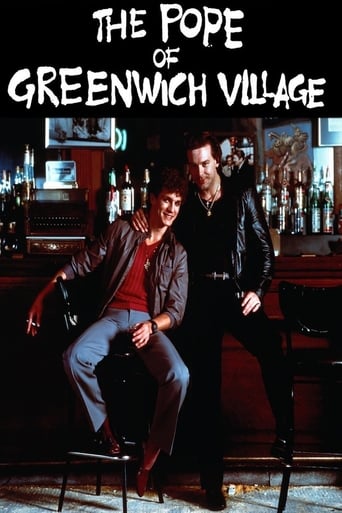
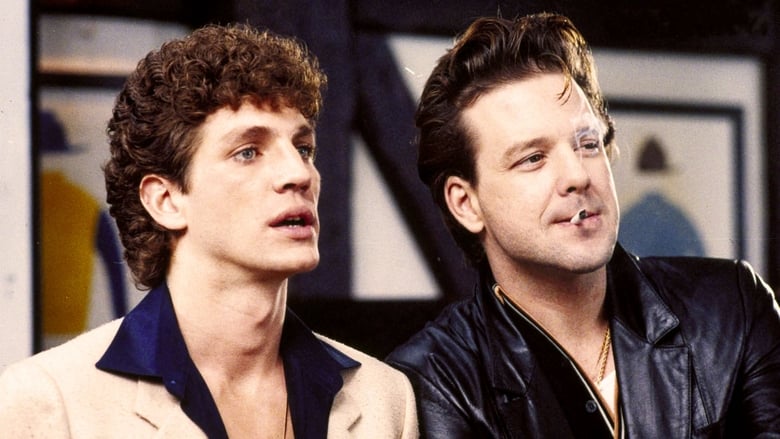
The Pope of Greenwich Village (1984)
 Watch Now
Watch Now





Charlie and his troublesome cousin Paulie decide to steal $150000 in order to back a "sure thing" race horse that Paulie has inside information on. The aftermath of the robbery gets them into serious trouble with the local Mafia boss and the corrupt New York City police department.
Watch Trailer
Cast


Similar titles
Reviews
Slow pace in the most part of the movie.
best movie i've ever seen.
A movie that not only functions as a solid scarefest but a razor-sharp satire.
One of the film's great tricks is that, for a time, you think it will go down a rabbit hole of unrealistic glorification.
Eric Roberts and Mickey Rourke make an unforgettable pair in Stuart Rosenberg's film (by way, in part I've read, of Michael Cimino), because they both take skills they've picked up as actors and applied them wonderfully to two roles that bring out their best. They play, essentially, a version of the Mean Streets characters ten years later: one wants to go straight in the Little Italy world they've grown up in, have a legitimate business like a restaurant, maybe start a family or settle down with his girl, and is a good guy - except, of course, for the 'black sheep' in his cousin who's a waiter sometimes, and also has other schemes going on like owning part of a racing horse, and gets himself into some very deep, hot water with local gangsters.The story may sound familiar, but the performances make a very big difference; in fact this is essential viewing for those intense male actors looking to break into theater or independent films. Some have criticized Eric Roberts for going over the top as Paulie, but he imbues this character with a complete and unnerving (or just nerving) sense of desperation. Paulie wants to be good too, and one can sense that, but being on the streets have messed with his head past the point of no return; he isn't quite as "I-don't-give-a-bleep" like Johnny Boy in Scorsese's picture, but the same tendency to tick off the wrong people is right there. And watching Roberts go to town in some really big scenes, like when he comes back from losing his thumb or a more subtle and intense scene like when he's getting questioned by Burt Young's mob boss, he shows why for a short while he was a star (maybe not his sister, but close enough).And yet one can't help but feel that for all of Roberts excellent work, for all of the superior supporting performances from Darryl Hannah and Geraldine Page (the scene where she tells the cops to get out of her apartment, holy hell is that fantastic), Young, the actor playing the locksmith, it's Mickey Rourke's time to shine. He had that quiet voice that one could tell could just crack at any second, and here he makes his tough guy in Rumble Fish look like a wuss; here one knows he could just erupt and go to town on someone, and does sometimes like on Paulie when the time comes (which is relatively often), but Rourke's power is in what he holds back, or appears to be holding back. He came out of the same school of acting as De Niro and Pacino and it shows, as if he were (or rather still is) one of the most gifted of the pupils of the method, and even as he gives that smirk or has a deceptive twinkle in his eye you just know he's got this character so damn down. He could wrestle with Keitel (no pun intended) and it would be hard to say who would win for pure on-screen chops.The story, I should add, is also very good, one of those very tightly constructed morality plays in the guise of a film-noir that operates so strongly because it doesn't make anyone too black or white- even the detective, who meets his sad end down an elevator shaft by accident, has a whole history that is developed perfectly in just one scene with his mother, and so he's no more or less unsympathetic than Paulie. It also ends in a peculiar way: after the volcanic climax, which comes as something of a surprise, it just shows Paulie and Charlie walking down the street, and the camera rises on a note of uncertainty. It is not quite as open and shut as Mean Streets might be, but it has its own level of doom: these two guys probably wont be able to rid each other of one another unless there's death, or worse.Some slightly dated 80s music notwithstanding (some of it weird synth Irish music), The Pope of Greenwich Village is exciting, occasionally funny, and gives all in the audience a taste of delicious New York style film acting. Everyone's on their A-game, and for a brief moment it looked as though the two stars could go anywhere with their careers...
Mickey Rourke is "The Pope of Greenwich Village" in this 1984 film also starring Eric Roberts, Geraldine Page, Kenneth McMillan, Darryl Hannah and Burt Young. Rourke is Charlie, who, with his cousin Paulie, rob a mobster with the help of a safecracker (McMillan). Both Rourke and Roberts are in fine form against the New York background. Everything about this film is seedy. The detectives all look out of shape and overtired, everybody has smoker's skin or a drinker's red nose. As Charlie, Rourke wants a big score so he can buy a restaurant, but his fatal flaw is listening to his idiotic cousin Paulie, a total loser and a weakling, who gets him involved in the robbery of a vicious mobster where a cop is killed at the scene. The attractive Rourke uses his sweet smile to good advantage and underplays; it's a shame he underwent such severe plastic surgery and took his career off track. Roberts plays Paulie as completely pathetic, so pathetic that at times, he's funny, even when his circumstances aren't.The mob movies were in their heyday when "The Pope of Greenwich Village" was made, so it probably got lost in the shuffle. It's not a big film, but the acting and locations are impressive. Look for Geraldine Page in a small but showy role as the dead cop's mother, a woman who can handle the police better than anyone.
Nobody would accuse this tale of being taut. It meanders around sufficiently that we get to know the characters, their families, their values -- and therein lies its charm. Eric Roberts is Pauli, the reckless Italian optimist, and Mickey Rourke is his more sensible, principled Irish cousin. The milieu is New York City and it is captured most impressively. These two street proletarians -- waiters and busboys -- ooze with the desire to own a Coupe deVille. Roberts brags that he never ordered a brandy that wasn't Courvoisier VSOP. Their ambition and their taste are palpable. I say this despite having grown up in the area without the slightest desire to live their life styles and lacking any intense affection for Frank Sinatra.Basically, the plot is a cross-cousin of "Mean Streets", with Rourke in the Harvey Keitel role and Roberts as the maniacal DeNiro. Not to suggest that this is an imitation of anything else. The writer, Vincent Patrick, has street lingo down pat, even to the smallest parts, and Stuart Rosemberg has executed it flawlessly. Even "mozarella" comes out properly as "moozarell." The two cousins alternately joke and fight with one another, depending on their position on the regression line between Robert's wild schemes and Rourke's more banal impulses. Roberts puts a "horse physic" in the drink of a ruthless cop. He engineers a lucrative burglary with the help of Rourke and a locksmith, Kenneth MacMillan, that results in the accidental death of a corrupt police officer, Jack Kehoe, whose only motive for being corrupt was to make enough money to move him and his sickly mother, Geraldine Page, to Phoenix in order to improve her health. (As I said, the script meanders, but meaningfully.) Geraldine Page gives a fine performance, by the way, as the self-destructive tough-as-nails street-savvy Mom.The money from the burglary belonged to the neighborhood Mr. Big, a villainous and revengeful Burt Young, who forces MacMillan to leave his family and blow town. He also removes one of Eric Roberts' digits. And just as he is having a duel of wits with the third party to the crime, Rourke, Roberts feeds Burt Young a cup of espresso filled with lye. The poisoned Young leaps through the storefront window and runs off down the street. The last shot has Roberts and Rourke strolling off, carefree, down the street, arguing about whether it would be better to live in Miami. That's a bit of a weak ending. Given Burt Young's vengeful nature and his position in the organization, I wouldn't give two cents for either of their well-clad behinds. If they wind up as lowly waiters again they'll be lucky.Well, I suppose I've made the film sounds like a terrible tragedy, but it's not. The street lingo and many of the incidents make it as much comic as anything else. One of Roberts' schemes has to do with betting a bundle on a horse that absolutely cannot lose. But Roberts' knows as little about racing as he does about keeping out of trouble. He's confused about which part of a stallion must be removed to turn it into a gelding. He's concerned about the colors of the jockey because it makes him look like a fairy. Roberts bets the whole shebang on a win, and the horse loses in a photo finish. The more prudent Rourke has made twenty large by betting on the horse across the board.It's a pretty good movie, full of well-drawn colorful characters and considerable suspense and humor.
The way to see this movie is the way I did. Other than Page or Kehoe I had no idea who any of these actors were. This imparts an authenticity in the character unfettered by the popularity of the actor playing him (or her). Since (and because of) this movie I look for movies with actors who are unfamiliar to me. I have seen much criticism of Eric Roberts on these pages but as far as I'm concerned he WAS Pauly. Love him or hate him, I can't imagine anyone better suited for that particular role. Pauly was a weasel and Roberts delivered a weasel. That pretty much goes right on down the line. the story flowed seamlessly from scene to scene and came together as one beautiful whole with a few minor exceptions. One of these exceptions being how upset Bedbug Eddie became when he learned of the tapes. It seem to me that the existence of these tapes would have been a MUCH bigger problem for the police than they would have been for him. They were TAKING the bribes. The other 'weakness', if you will was the ending. A little too Hollywood. They had just poisoned the most notorious dude in the Village and they are walking away arguing about how it should have been done instead of running for their lives. Only these few things kept this from being a perfect ten and I highly recommend it. Even if you DO know all of the actors.


